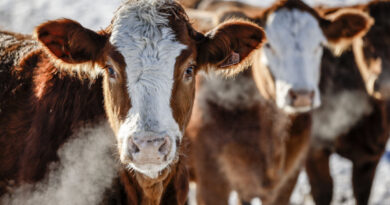Farmers, Fairness, and Nuclear Power: National’s Vision for a Brighter Future
“One of the main reasons I entered parliament is my frustration over young people leaving regional Australia,” stated Littleproud.
If the Coalition secures victory in the federal election on May 3, Nationals Leader David Littleproud is set to become Australia’s next deputy prime minister.
During an address at the National Press Club on April 24, he advocated for regional Australia, asserting that the Nationals are the sole party dedicated to the future of rural areas.
“One of the main reasons I entered parliament is my frustration over young people leaving regional Australia,” Littleproud expressed.
“We need to bring them back and ensure they remain here. Without the necessary amenities and services, they won’t stay. This is a pivotal issue that transcends politics.”
Littleproud presented a vision rooted in the core values of the Nationals, focusing on food security, reliable energy, fairness for farmers, and practical support for struggling communities.
He defended Coalition policies on nuclear energy and addressed inquiries regarding the Coalition’s stance on energy and Indigenous affairs.
Big Vision, Bigger Fund
At the heart of the Nationals’ election platform is the establishment of a $20 billion (US$12.8 billion) Regional Australia Future Fund. Initiated with $5 billion, the fund would receive annual contributions from a portion of windfalls generated by Australia’s $350 billion export sector.
“We will ensure that $1 billion annually reaches the areas that need it most—bridging service gaps across regional Australia,” Littleproud said. “We are a prosperous nation, but we need to be smarter.”
Littleproud also suggested the reintroduction of the agriculture visa to prevent labor shortages from leaving Australia’s fruit and vegetable crops unharvested.
“We now represent as many nurses and police officers as we do farmers. But we will never neglect our agricultural roots.”
Food, Water, and Farmgate Fairness
Staying true to the Nationals’ rural heritage, Littleproud unveiled a national food security plan aimed for implementation within six months of winning the Coalition.
He criticized Australia’s major supermarkets, accusing them of exploiting their market power to the detriment of farmers and consumers alike.
“In June and July of last year, the prices for sheep and beef plummeted by 70 to 80 percent at the farm gate. Meanwhile, prices at the checkout dropped only by 8 percent,” he stated.
“We will guarantee fairness and transparency from the farm gate to your plate.”
He also criticized federal water buybacks, aligning with farmers’ calls for reforms to address what they view as heavy-handed and ineffective environmental policies.
“The Basin isn’t benefiting, and farmers are losing their essential resources. This situation must change.”
Nuclear Now, Not Later
In response to detractors of the Coalition’s plan to construct nuclear power stations at former coal sites, Littleproud cited polls indicating robust community support in the seven selected regional areas.
“There’s no need to enter election campaigns where you have already secured voter approval,” he remarked. “We have already gained the social license in those seven communities.”
He mentioned that the Liberal Party even saw a 15 percent swing in Collie, Western Australia, during the state election in March, where nuclear policy was discussed.
When asked about Liberal Leader Peter Dutton’s avoidance of visiting nuclear sites during the campaign, Littleproud affirmed that the Coalition had laid the groundwork.
He also refuted Prime Minister Anthony Albanese’s assertion that the nuclear initiative would incur costs of $600 billion.
“Our total grid cost will exceed $330 billion. Their all-renewables grid will approach $600 billion,” he clarified.
Littleproud Warns Against Labor-Greens Coalition
Littleproud cautioned about the potential chaos if a Labor, Greens, and Teal coalition were to emerge following the election.
“If you have Anthony Albanese and Adam Bandt collaborating with a sprinkling of Teals and independents, this country could be in trouble,” he remarked.
Though Albanese has permanently dismissed a formal partnership with the Greens, Littleproud stressed that the genuine risk lies in a progressive coalition holding the balance of power.
No to the Voice, Yes to Real Reform
Littleproud reiterated the Nationals’ opposition to the Voice to Parliament, claiming it would repeat past mistakes.
Instead, he advocated for a royal commission into child sexual abuse in Central Australia and a comprehensive audit of spending in Indigenous communities.
“Within our party room, we engaged in a respectful process to consider both the Yes and No perspectives,” he said. “Following the Voice result, there were no celebrations. We returned to Parliament to push for meaningful action.”
As the Nationals aim to secure 28 lower house seats and five Senate positions, Littleproud clarified his party’s objective: protect regional Australia, restore fairness, and forge a future rooted in local voices and national strength.





